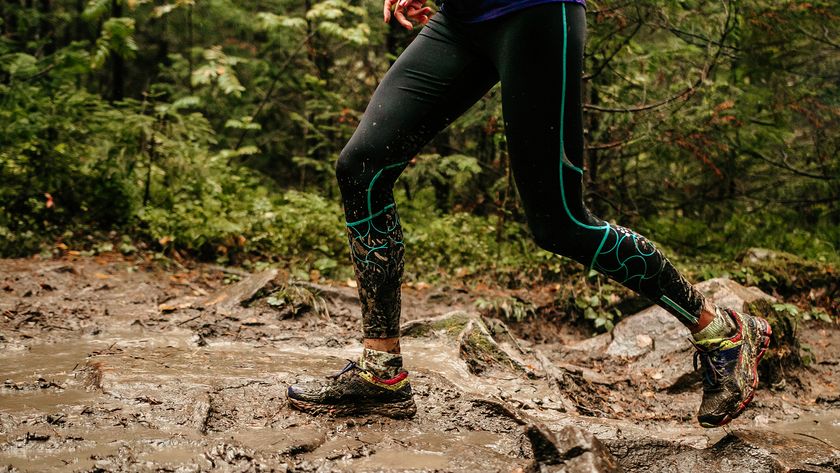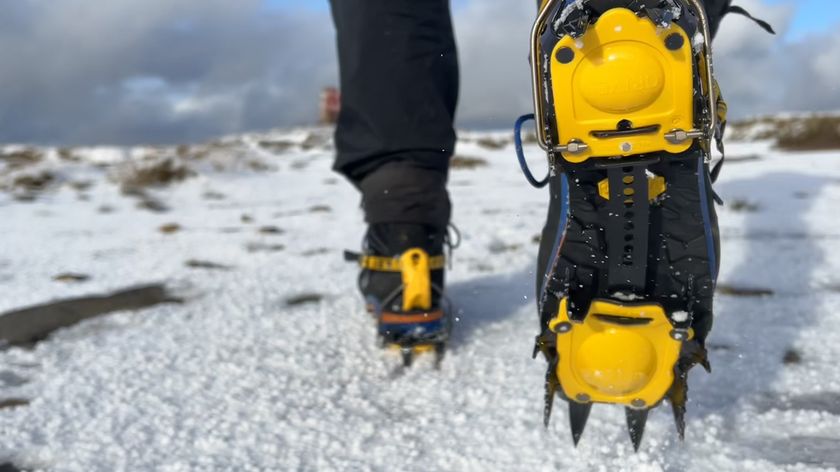How to choose groundbait: everything you need to know
Learn how to choose groundbait correctly with these expert tips from Dave Coster
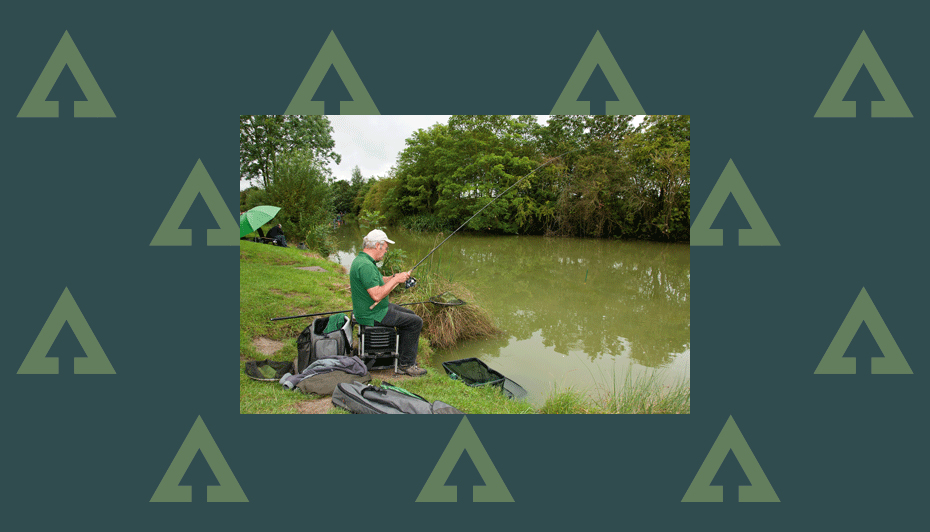
Welcome to Advnture, the new home of AnglersMail.co.uk
Don't worry if you don't know how to choose groundbait. It can be confusing seeing the enormous ranges of groundbait available in tackle shops these days, but pro Dave Coster is here to help.
In this special guide, he'll put you back on track and not only help you to learn how the choose groundbait for every eventuality, but he's also got some top tips for how to prepare and introduce the right groundbaits into your swim.
So what are you waiting for? Read on for everything you need to know about how to choose groundbait.
- How to choose fishing bait: what you need to catch more fish
- The best meat fishing bait: tips for using luncheon meat
- How to catch your own bait: rigs, baits, tackle and tips for mackerel
How to choose groundbait: what you need
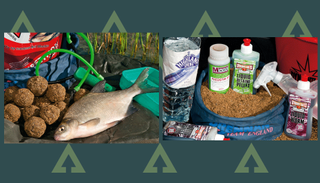
Before we get onto how to choose groundbait, let's start with what you'll need...
In order to prepare groundbait correctly the first thing you need is a decent mixing bowl. In fact, if you want to take groundbaiting seriously it’s a good idea to invest in a set of two or three bowls, so you can experiment with different mixes.
An atomiser spray is very useful for fine tuning mixes, along with a container of water (lake or river rather than a tap) so you can mix moisture in more precisely. Having a selection of liquid flavourings on hand is a good idea too, so that bland mixes can quickly be revitalised.
Advnture Newsletter
All the latest inspiration, tips and guides to help you plan your next Advnture!
How to choose groundbait: good timing

Rather than knocking up groundbait without any thought, it’s a good idea to get in the habit of timing your mixes. This way you can recreate a particularly good groundbait mix time and time again.
After initial mixing with water, allow a short standing period to let the moisture fully absorb. Normally a second application of moisture will be required to plump the feed up even more.
How to choose groundbait: darkening down
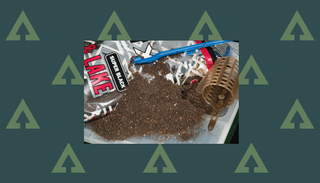
When it comes to learning how to choose groundbait, black and dark groundbaits work well in clear water. They don’t stand out on the bottom, which prevents attracting unwanted attention from diving birds.
Also, potential prey fish don’t like hovering over light groundbait patches on the bottom in clear water, because this makes them stand out to predators. You can buy special groundbait dyes if you need to tone down a favourite light coloured mix.
How to choose groundbait: red mist
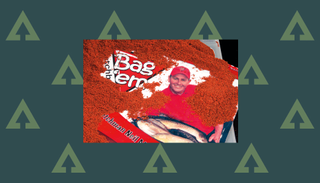
Red groundbait is very popular too, being a big favourite for carp, bream and tench. Red groundbait tends to works well in the summer months in heavily coloured lakes, tying in well with red maggots, worms and red sweetcorn.
Red feed is also worth considering in clear, cold water because in similar fashion to black groundbaits it doesn’t produce a light backdrop that makes prey fish stand out to predators.
How to choose groundbait: perfect finish
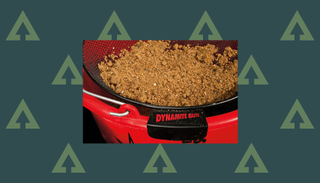
Mixed groundbait might feel and look okay but it will perform even better if you riddle it. Apart from removing any lumps and large particles, this process also aerates the feed into a nice fluffy texture.
This helps it to bind better so it won’t break up in flight, but doesn’t make the groundbait so hard it won’t break down in water. Riddled groundbait also tends to be more active.
How to choose groundbait: super active
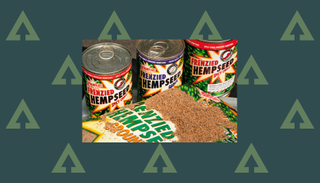
Crushed hemp seed is a top ingredient for making groundbaits more active. This additive sends off an attractive oily slick, helping to burst groundbait out of open-end feeders in an enticing cloud of particles.
Tinned hemp is another great fish attractor when mixed with groundbait. This gear is pressure cooked, so it holds in all its flavour and oils, which helps to turn groundbait extremely active, sending an impressive fizz of bubbles to the surface.
How to choose groundbait: attacking method
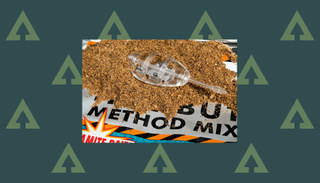
Method mix groundbaits are deliberately binding in nature so that fish have to attack them hard to get at the bait, and to prevent them from breaking away from method feeders too quickly.
You need to mix this type of groundbait very carefully, otherwise you will end up with a gooey mess! Add water in very small amounts and stir the groundbait vigorously. These binding mixes compress better when mixed slightly on the dry side.
How to choose groundbait: sweet tooth

Molasses is a great groundbait ingredient for sweet-toothed bream. It ties in particularly well with baits like sweetcorn and fruit flavoured pellets or boilies.
Some groundbait mixes contain molasses in dry form, while it’s also available as a thick treacly liquid additive. In the latter form, be careful to add the molasses to water as you mix the groundbait, because pouring it on neat makes for a very sticky concoction!
How to choose groundbait: crumb basics
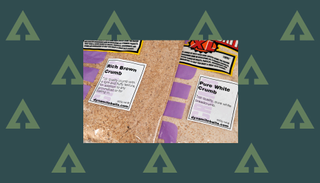
Brown breadcrumb is a superb and relatively cheap bulking agent for most types of groundbait. It doesn’t detract from the flavour and also makes the groundbait into a better consistency to work with.
White breadcrumb tends to be more binding in nature, normally being used on its own when fishing with various types of bread hook baits. White crumb breaks down quicker if you mix it on the dry side, or dilute it with some brown crumb.
How to choose groundbait: punch power
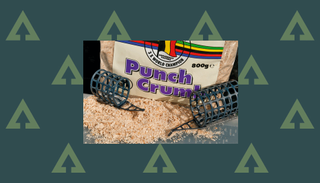
Punch crumb is a coarser white breadcrumb that has been freeze dried. This process stops the white crumb from being too sticky, but even then careful mixing is required to prevent stodgy mixes.
A good trick is to mix prepared punch crumb with liquidised bread. This creates a fluffy textured, soft groundbait, also adding a bit of weight to the liquidised bread so it sinks better.
How to choose groundbait: corny solution
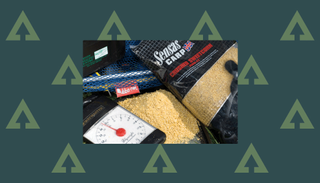
Crushed sweetcorn powder is a relatively new groundbait ingredient. Sweetcorn in its natural and dyed state is very popular bait, so it makes sense to utilise this fish attractor in groundbait too.
Sweetcorn based groundbaits work well for carp, bream, barbel, chub, big roach and tench. Some anglers even liquidise sweetcorn and then add it to groundbait, but this needs to be done in moderation, otherwise the feed turns very mushy.
How to choose groundbait: river marvels
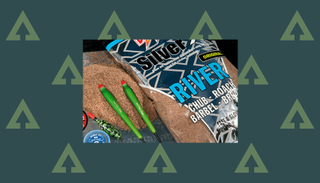
Off the shelf river groundbaits are a bit heavier and more binding in consistency. This is obviously to help them get to the bottom in flowing water and hold there long enough for fish to find them.
Most river recipes are geared up for chub, bream, barbel and roach, leaning towards darker brown colours, which makes them less obtrusive – important when targeting shy wild fish. This type of feed suits hard balling techniques and use in open-end feeders.
How to choose groundbait: cheaper options
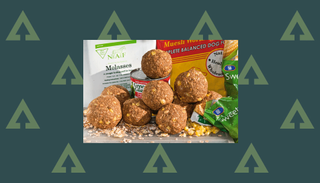
Vitalin is a cheap muesli style dog food many anglers find very effective, especially for pre-baiting. This gear consists of cereals and some meaty content, working particularly well with molasses and sweetcorn.
Considering most tailor made groundbaits cost between £3 and £4 a kilo these days, it makes sense to look at bulk style animal feeds to save a few bob. Layers Mash (chicken feed) is another good bulk groundbait alternative.
How to choose groundbait: mix 'n' match
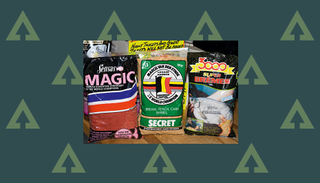
Although most off the shelf groundbaits work in their own right, it’s well worth experimenting by concocting your own mixes. Many experienced anglers do this, creating groundbaits that suit their methods more closely.
There’s nothing wrong with using a favourite recipe as a starting point, then fine tuning it with softer or more binding groundbaits, to make it behave slightly differently.
How to choose groundbait: species specials
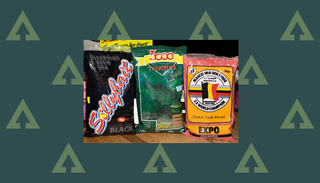
While some groundbaits are designed for specific methods and venues (river, lake, canal, method, etc), others are aimed at specific species. Sensas Tanches groundbait is very popular for tench, while the Sillybait range has cult status on commercial carp pools.
Van den Eynde Expo is another species special, which is highly regarded for tench, while you will also discover roach, bream, carp… even gudgeon groundbaits in tackle shops.
How to choose groundbait: groundbait classics

Every now and then a groundbait recipe really hits the spot and becomes immensely popular. Tried and tested mixes like Sensas Crazy Bait Gold should not be ignored.
In factm, fish like this gear so much, anglers make it into paste for the hook and huge catches have resulted. The same popularity applies to Dynamite’s green Swim Stim, which again works equally well on the hook as it does as a groundbait.
How to choose groundbait: getting sloppy

Although much emphasis is placed on mixed groundbaits correctly, there is one exception where a sloppy mix works wonders.
Mashing bread into a sloppy consistency is extremely effective in combination with long trotting bread hook baits on rivers. Feeding small helpings of bread slop regularly sends particles swirling down with the current a long way, pulling lots of interest from big roach and chub.
How to choose groundbait: having a ball
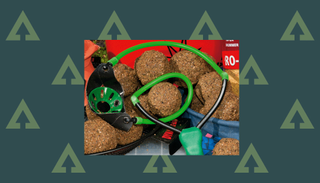
Putting in a barrage of groundbait in ball form – often called balling it in – is an attacking method that can work well on many types of venue. On some, it’s a risky tactic that doesn’t always work, while on others, like vast stillwaters, it’s often the only way to make an impact.
Balling can be done by hand at short range, but generally a sturdy groundbait catapult is essential equipment, particularly with bream anglers who tend to fish at long range.
How to choose groundbait: pinpoint cupping
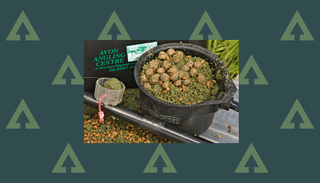
Pole anglers have the advantage of being much more precise with their groundbaiting, using various sized cups or pots attached to the end of their poles to drop groundbait inch perfectly over where they are fishing.
Cupping also allows groundbait to be fed in loose form, rather than a hard ball, which often fools ultra wary fish into feeding. Cupping in loose groundbait creates a very fine bed of feed that forces fish into grazing for longer periods.
How to choose groundbait: end result

The thing to remember with groundbait is, after you’ve put it in you can’t take it out! Yes, sometimes balling feed in big time will work wonders, but there are many occasions when it won’t.
Groundbait is like any other feed, nine times out of ten feeling your way in with a little and often approach will bring more consistent results. One thing is for sure, experimenting with your groundbait mixes, and the way you feed them, can make a big difference to your results.



